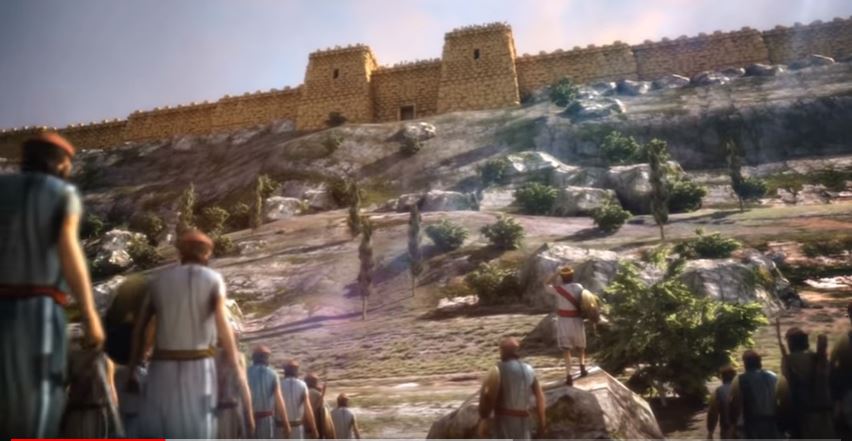Ooh boy—that’s a great question. Here are a few, to titillate the palate:
Post-Exodus:
- Are we there, yet?
- Why isn’t God allowing Moses to enter the Holy Land? Isn’t that mean, considering all he’s done?
Judges period:
- How come we don’t have a king, like all the other nations?
- If God promised us the whole of Canaan, why did he allow the Philistines to settle on the coast and torment us? And why can’t we have iron weapons, too?
- Why do Ephraimites lisp?
- Is it OK for me to hate Manassehites?
- Why are we pretending that the Dan tribe are one of us—when everyone knows that they’re just assimilated Philistines? (Why should we even trust them?)
- Why don’t the Zvulunites and Issacharites do something useful, like become mariners, like the Phoenicians?
- If Jacob was supposed to be a weakling compared to Esau, how was he able to wrestle with an angel all night? Does this mean that Esau could have beaten the angel?
- Would someone kindly clarify once and for all what’s in the Ark of the Covenant?
United Kingdom (~1050 – 931 BCE):
Israelite (northern kingdom) questions:
- Why are the Judeans so stuck up? Ephraim is a bigger tribe, and Judah wasn’t even Jacob’s eldest son.
- Why do we have to accept the House of David as our royal family? David’s great-grandmother wasn’t even Judean, but Moabite.
- Why does Jerusalem—which wasn’t even an Israelite city to begin with—get to host the Temple, and not Beit-El, which was founded by Jacob expressly for that purpose?
Post-breakup of the united kingdom:
- Why do liberals dislike King Manasseh so much? Can’t they see how much good he’s doing us?
- Why are the Judahite prophets such dour sticks-in-the-mud? Why can’t they be charismatic miracle-workers, like our Elijah, or Elisha?
Judea, King Hezekiah reign, after fall of Israel (722 – 696 BCE):
- If Isaac was Abraham’s son, why did he send his son Jacob to Haran [in southeastern Turkey] as the old homestead, instead of to Ur of Chaldees, where Abraham was from?
- So what IS God’s name? Is it El, or that other one that we’re not allowed to say?
- Why are there two stories of Creation? Which one is true?
- Why are the northerners so obsessed with the Exodus? Why do we Judeans, who had the good sense not to go to Egypt in the first place, have to keep hearing about how they suffered there?
- Why do northerners keep whining? Aren’t they appreciative that we took them in after their kingdom was destroyed?
En route to exile in Babylon (~585 BCE)
- Are we there, yet?
In Babylon, when Cyrus allows Judeans to return to Judea
- Aww—do we HAVE to go back? Life is pretty good here.
Second Temple period:
- Why are we using the Aramaic script instead of Hebrew script that we used for a thousand years after the Exodus? Isn’t the Hebrew script the one that Moses and King David used?
- Why are we referring to the poor of the land who stayed behind when we were exiled to Babylon as “Samaritans”, and not as Judeans?
I could go on, but I have a day job…
[Originally posted on Quora, March 11, 2018]

